Have you ever wondered how businesses can reach their target audience so effectively through digital marketing? The answer lies in the creative strategies and tactics they use to capture the attention of their audience in the online world.
Digital marketing has become an essential component of modern business strategies. With the rise of social media, search engines, and other online platforms, businesses have a plethora of opportunities to promote their products or services to a wider audience. However, not all digital marketing efforts are created equal.
To truly stand out in the digital landscape, businesses need to be innovative and strategic in their approach.
In this article, we'll explore some of the most successful digital marketing examples from companies across different industries.
|
Digital Marketing Digital marketing is advertising delivered through digital channels to help promote brands and connect with potential consumers. |
What is Digital Marketing?
Digital marketing is the promotion or marketing of products and services using digital channels. It encompasses all online marketing activities but also includes some offline activities. From promotional emails to YouTube ads to website pop-ups, digital marketing strategies are diverse and ever-evolving.
In today's digital age, businesses must adapt to changing consumer behaviour and preferences. The widespread use of the internet and mobile devices has made digital marketing an indispensable tool for connecting with your target audience, building brand awareness, and driving sales.
E-commerce websites, social media advertising, and email marketing campaigns have become lifelines for maintaining customer engagement and generating revenue during challenging times.
However, it's important to note that not all digital marketing strategies are equally effective. To make the most of digital marketing, you need to follow best practices and guidelines.
Digital marketing is not a one-size-fits-all approach, but rather a strategic and dynamic process that requires continuous adaptation and improvement. You must stay up-to-date with the latest trends, technologies, and consumer behaviours to stay ahead of the competition and drive meaningful results.
Things You Need Before Starting Your Digital Marketing Campaign
Digital marketing is presenting your products and services to consumers or other businesses by building a digital marketing strategy that perfectly outlines your goals and charts out steps to achieve those goals. However, to build a good strategy, here are a few things you can do:
As you embark on your digital marketing campaign, it's important to ensure that you have all the necessary elements in place for a successful strategy. Digital marketing involves presenting your products and services to consumers or other businesses through various digital channels, and to create a winning strategy, you need to carefully plan and execute your approach. Here are some key things to consider:
1. Clearly Define Your Goals
Before diving into digital marketing, it's essential to have a clear understanding of what you want to achieve. Whether it's increasing brand awareness, driving website traffic, generating leads, or boosting sales, your goals will guide your entire strategy.
Make sure your goals are specific, measurable, attainable, relevant, and time-bound (SMART) to set yourself up for success.
2. Know Your Target Audience
Understanding your target audience is crucial for crafting effective digital marketing campaigns. Conduct thorough research to identify your ideal customers, their preferences, needs, and pain points.
This will enable you to tailor your marketing messages, content, and offers to resonate with your audience and drive engagement.
3. Choose the Right Digital Channels
With so many digital channels available, it's important to select the ones that align with your goals and target audience. From social media platforms to search engines to email marketing, each channel has its unique strengths and weaknesses.
Be strategic in your selection and focus on the channels that will best reach and engage your target audience.
4. Create Compelling Content
Content is the backbone of digital marketing. Your content should be informative, relevant, and engaging to attract and retain your audience's attention.
From blog posts to social media posts to videos, invest in creating high-quality content that resonates with your target audience and aligns with your overall marketing objectives.
5. Monitor and Optimize
Digital marketing is not a one-time effort but an ongoing process. It's crucial to continuously monitor the performance of your campaigns and make data-driven optimizations to improve results.
Analyze key metrics such as website traffic, conversion rates, engagement rates, and return on investment (ROI) to identify areas for improvement and refine your strategy accordingly.
15 Best Digital Marketing Examples
As you continue to hone your digital marketing strategy, it's important to draw inspiration from the best practices in the industry. Learning from successful examples can provide valuable insights into what works and help you refine your approach.
Here are 15 notable digital marketing strategy examples to inspire your efforts:
1. Nike
Nike has crafted a digital marketing strategy that revolves around its Nike+ app. This app serves as a powerful tool for engaging with customers and driving brand loyalty. By leveraging data and technology, Nike has created a seamless and personalized experience for its users, offering personalized training plans, tracking activity, and connecting them with a community of fitness enthusiasts.

One of the key elements of Nike's digital marketing strategy is the collection of valuable customer data through the app. By gathering information on user preferences, activity levels, and engagement patterns, Nike gains insights that inform future marketing initiatives and product development.
This data-driven approach allows Nike to tailor its marketing efforts and product offerings to better meet the needs and preferences of its target audience, ultimately driving customer loyalty.
Moreover, Nike's Nike+ app fosters a sense of community among its users. By connecting fitness enthusiasts through the app, Nike creates a platform where users can share their achievements, challenges, and progress, fostering a sense of belonging and encouraging continued engagement with the brand.
This community-building aspect of Nike's digital marketing strategy helps to strengthen the emotional connection between the brand and its customers, resulting in increased brand loyalty.
Nike's digital marketing strategy also focuses on providing value to its customers. Through personalized training plans, tracking features, and access to a community of like-minded individuals, Nike offers a unique and valuable experience to its users, motivating them to stay active and engaged.
By providing this value-added service, Nike positions itself as more than just a seller of athletic apparel but as a trusted partner in its customers' fitness journey, further solidifying customer loyalty.
2. HubSpot
HubSpot has successfully used an inbound marketing approach to establish its brand as a trusted source of information and solutions. By providing valuable content and resources to attract and nurture leads, HubSpot has built a loyal following of marketers who rely on their expertise for their eating efforts.
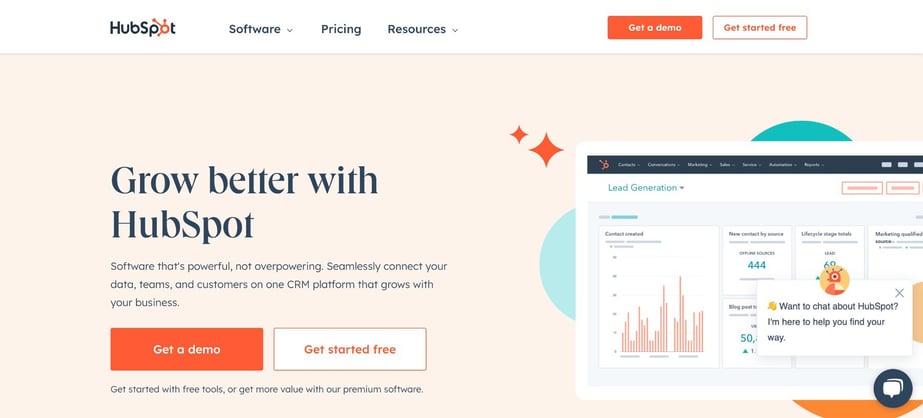
One of the key elements of HubSpot's digital marketing strategy is its commitment to delivering valuable insights and expertise through various forms of content. From blogs and webinars to ebooks and other resources, HubSpot consistently provides valuable and actionable information that helps marketers stay informed and improve their marketing efforts.
This approach has positioned HubSpot as a go-to resource for marketers seeking reliable and relevant information, driving brand credibility and customer loyalty.
HubSpot builds trust and establishes itself as a helpful and knowledgeable partner in its customers' marketing efforts. This customer-centric approach not only drives brand loyalty but also fosters long-term relationships with customers who see HubSpot as a valuable resource and trusted advisor.
3. Starbucks
Starbucks, a global leader in the coffee industry, has successfully used social media as a powerful tool in its digital marketing strategy. One notable example is their "White Cup Contest" campaign, which exemplifies their innovative and interactive approach to engaging with customers.

The "White Cup Contest" encouraged Starbucks customers to showcase their creativity by decorating their white coffee cups and sharing their unique designs on social media platforms. This user-generated content not only generated buzz and excitement among Starbucks' loyal fanbase but also resulted in a plethora of user-generated content that further amplified the brand's reach and visibility.
By leveraging social media in this way, Starbucks was able to foster a sense of community and engagement among its customers, who eagerly participated in the contest and shared their creations with pride.
This not only strengthened brand loyalty but also provided Starbucks with a wealth of user-generated content that they could repurpose across their social media channels, creating a ripple effect of organic promotion and brand advocacy.
Furthermore, the "White Cup Contest" campaign exemplifies Starbucks' commitment to creating meaningful and interactive experiences for its customers.
4. Red Bull
Red Bull is a brand that has truly mastered the art of engaging its target audience. Through its strategic digital marketing efforts, Red Bull has successfully positioned itself as a thought leader in the energy drink industry and beyond.
One key aspect of Red Bull's digital marketing strategy is its focus on creating compelling and adrenaline-pumping content. Red Bull sponsors extreme sports events, such as the Red Bull X-Fighters and the Red Bull Air Race, and produces captivating videos and articles that showcase these events and the athletes who participate in them.
By aligning its brand with the interests and lifestyle of its target audience, Red Bull has been able to create content that resonates with its fans on a deep emotional level.
Red Bull's digital market efforts go beyond traditional advertising and focus on creating experiences for its audience. Through their events, content, and social media engagement, Red Bull has built a community of loyal fans who actively engage with the brand and eagerly await their next adrenaline-pumping adventure.
As you develop your digital marketing strategy, take a cue from Red Bull's approach to content marketing. Consider how you can create engaging and shareable content that aligns with your target audience's interests and lifestyle.
5. Oreo
As a digital marketer, it's important to be agile and responsive to real-time events and trends, and Oreo exemplified this with their memorable Super Bowl blackout tweet in 2013.
When the lights went out during the game, Oreo quickly tweeted, "You can still dunk in the dark," capturing the attention of millions of viewers and going viral in a matter of minutes.
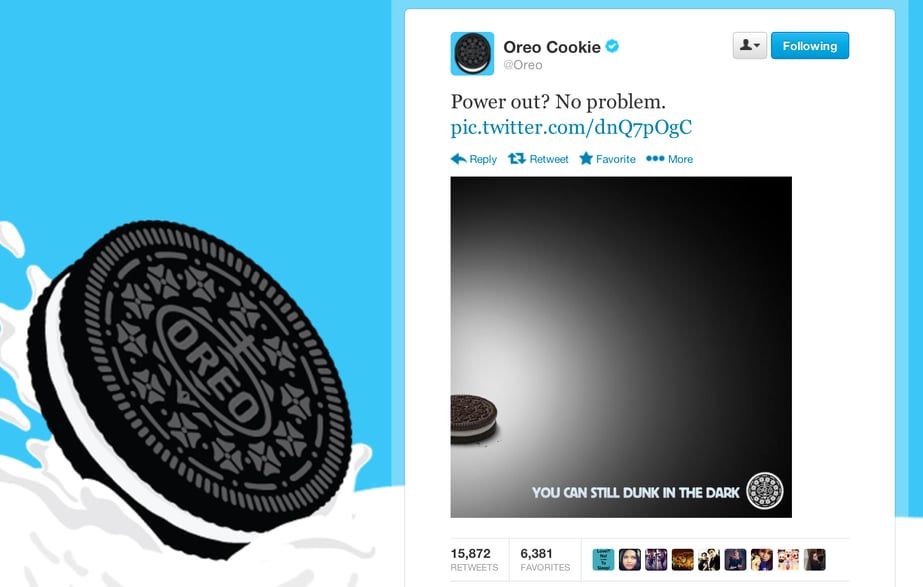
Oreo's real-time marketing approach during the Super Bowl blackout was a brilliant display of its ability to capitalize on a cultural moment and create timely and witty content. By leveraging the real-time event and incorporating its brand message, Oreo was able to generate widespread brand awareness, engagement, and buzz across social media platforms.
This viral tweet not only earned Oreo praise for their quick thinking and clever marketing, but it also showcased their ability to be relevant and connect with their audience in real-time.
This momentous marketing move resulted in an enormous boost in brand exposure and engagement, further solidifying Oreo's position as a thought leader in the digital marketing space.
6. Apple
Apple has long been known for its iconic product launch events that create a palpable sense of excitement and anticipation among its fanbase. Through its digital marketing channels, Apple generates massive buzz and hype leading up to each product launch, creating a sense of exclusivity and anticipation among its loyal customers.
Apple's digital marketing strategy for product launches is a masterclass in creating emotional connections with customers. By leveraging its loyal fanbase and creating a sense of anticipation through teasers, sneak peeks, and countdowns, Apple builds excitement and generates widespread buzz across social media, blogs, and other online platforms.
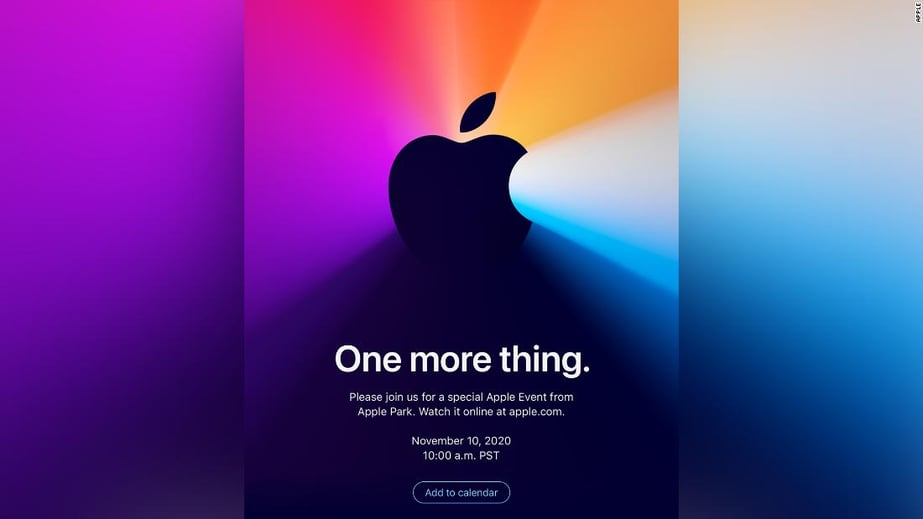
The key to Apple's success lies in its ability to tap into the emotions and aspirations of its target audience. By creating a sense of anticipation and exclusivity, Apple makes its customers feel like they are part of an exclusive club, fueling their desire to be among the first to own the latest product.
As digital marketers, we can learn from Apple's approach to product launches by focusing on building emotional connections with our audience. By creating a sense of anticipation, exclusivity, and excitement, we can foster brand loyalty and generate buzz around our products or services, leading to increased demand and customer engagement.
Apple's digital marketing strategy for product launches serves as a prime example of how emotional marketing can be a powerful tool in building a loyal and engaged customer base.
7. Airbnb
Airbnb's conversational marketing strategy is centred around its messaging platform, which fosters real-time communication between potential guests and hosts. Through this approach, Airbnb creates a personalized and responsive booking experience that builds trust and loyalty among its customers.
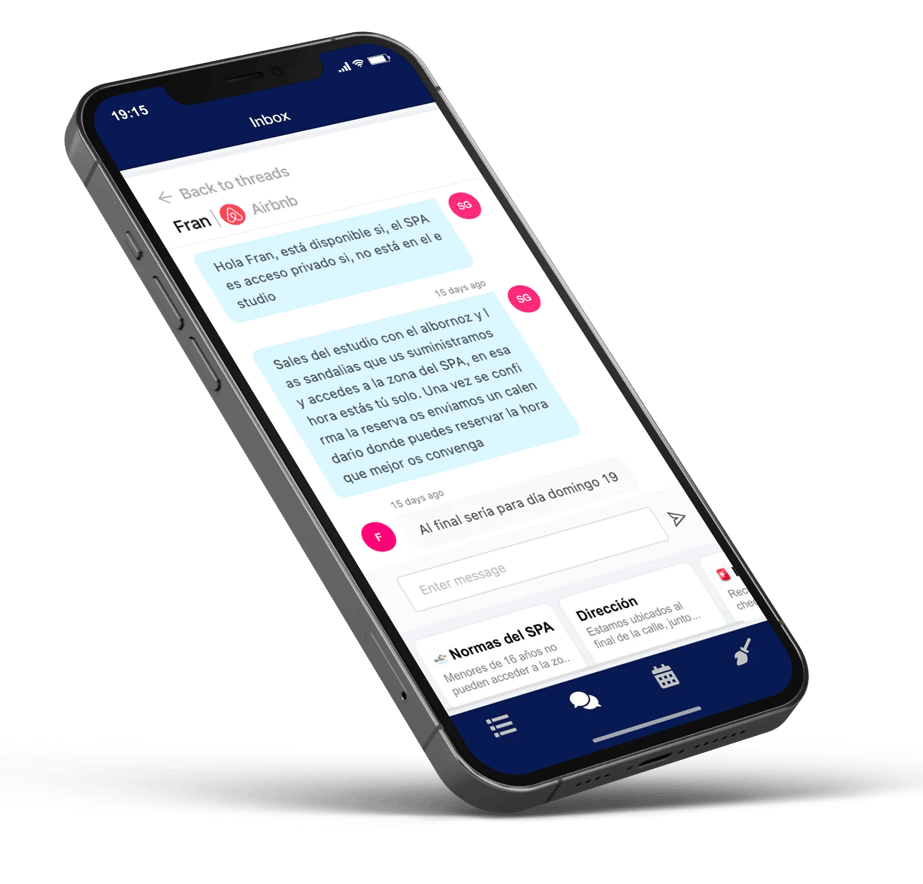
The power of conversational marketing lies in its ability to create meaningful interactions with customers. Airbnb's messaging platform allows potential guests to connect with hosts, ask questions, and receive personalized recommendations in real-time.
This one-on-one communication not only helps address customer inquiries promptly but also creates a sense of personalized service and care, leading to a seamless booking experience.
Airbnb's conversational marketing approach serves as a prime example of how personalized and responsive communication can drive customer loyalty and trust. By leveraging its messaging platform, Airbnb creates a seamless booking experience, fosters a sense of community, and builds lasting relationships with its customers.
As digital marketers, we can learn from Airbnb's conversational marketing approach by prioritizing personalized and responsive communication with our customers. By using messaging platforms, chatbots, and other tools, we can create meaningful interactions, build trust, and foster loyalty, ultimately driving business success.
Airbnb's conversational marketing strategy demonstrates the power of human-centric marketing, where authentic communication and personalized experiences can truly set a brand apart.
8. GoPro
GoPro's user-generated content (UGC) strategy has been instrumental in building a thriving community of brand advocates. By encouraging customers to share their thrilling action-packed footage on social media, GoPro has created a powerful marketing tool that amplifies its brand reach and drives engagement.
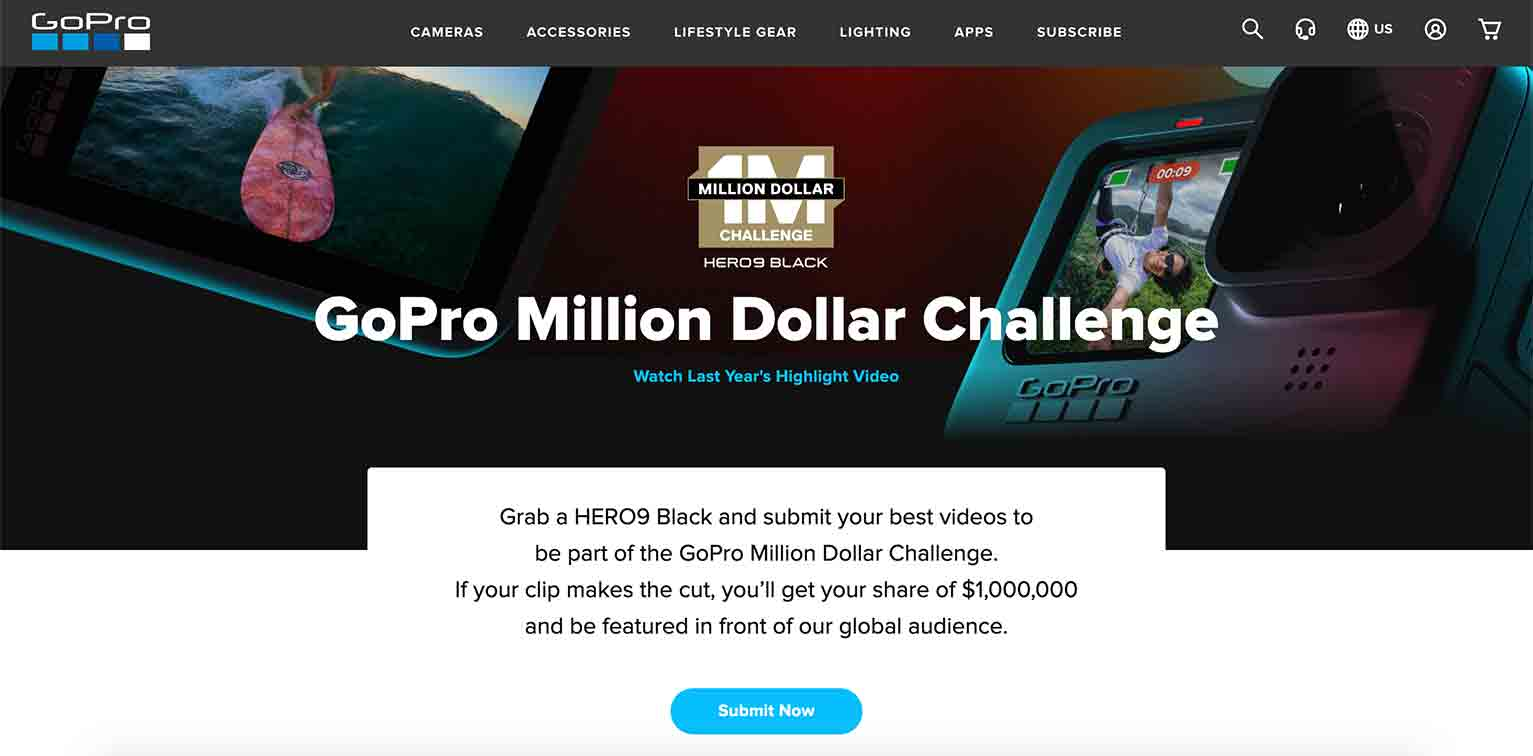
At the heart of GoPro's UGC strategy is its recognition of its customers as storytellers. GoPro empowers its customers to capture and share their exhilarating experiences using GoPro cameras, which are designed to be durable and versatile, making them ideal for capturing action-packed moments.
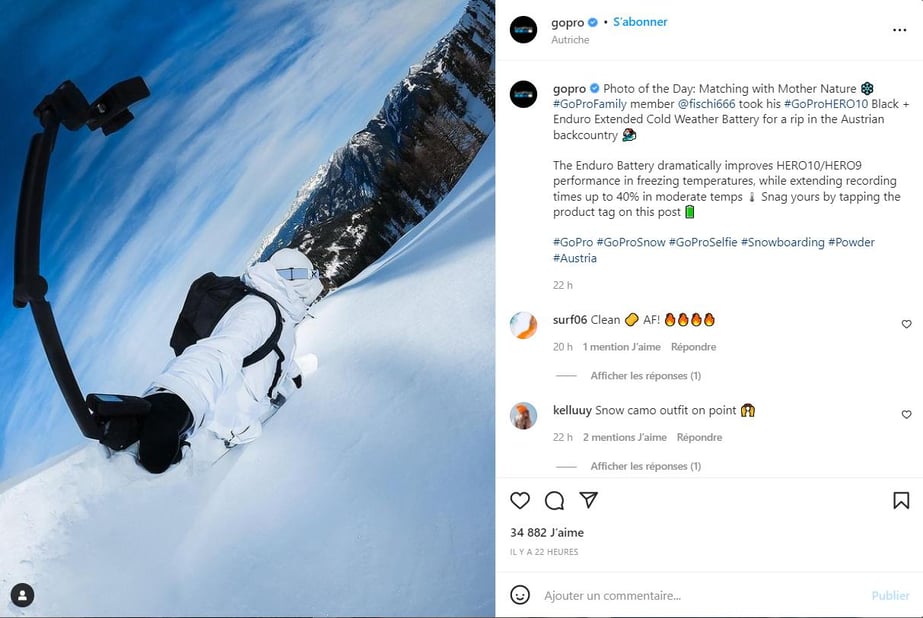
Showcasing the capabilities of its products through real-life footage captured by its customers, GoPro establishes itself as a brand that enables and celebrates adventure. The result is a passionate and engaged community of GoPro users who actively share their experiences on social media platforms, such as Instagram, Facebook, and YouTube.
This user-generated content serves as authentic testimonials of GoPro's products, showcasing their quality, durability, and performance in real-world scenarios. It also inspires others to create and share their content, further amplifying GoPro's brand messaging and fostering a sense of community among its customers.
GoPro's UGC strategy has proven to be a powerful marketing approach that leverages the creativity and enthusiasm of its customers to showcase its products and drive brand engagement.
As digital marketers, we can learn from GoPro's approach by recognizing the value of user-generated content and empowering our customers to be brand advocates. By encouraging and featuring customer-generated content, we can foster a sense of community, amplify our brand reach, and create authentic and compelling brand stories that resonate with our target audience.
GoPro's UGC strategy exemplifies the power of harnessing customer creativity and passion to create a vibrant and engaged brand community.
9. Old Spice
Old Spice's "The Man Your Man Could Smell Like" campaign is a shining example of a viral marketing success story. This campaign masterfully combined humour, absurdity, and interactivity to create a memorable brand persona that resonated with its target audience, leading to widespread engagement and brand recognition.
At the heart of Old Spice's campaign was its distinctive character, "The Man Your Man Could Smell Like," played by actor Isaiah Mustafa. This character exuded confidence, humour, and charm, and quickly became a cultural sensation. The campaign's ads featured Mustafa delivering witty and offbeat monologues, speaking directly to viewers and inviting them to participate in the brand's narrative through social media.
Old Spice leveraged social media platforms like YouTube and Twitter to engage with consumers in real-time. The brand responded to comments and questions from viewers, creating a unique and interactive experience that fostered a sense of community and connection. This approach allowed Old Spice to tap into the power of social media to amplify its campaign and generate buzz, resulting in millions of views, shares, and conversations online.
10. Google
Google's "Year in Search" videos have become an annual tradition that strikes a chord with audiences around the world. These videos, which reflect on the year's most searched moments, evoke deep emotions and resonate with viewers on a personal level.
Through this emotional connection, Google reinforces its brand purpose of being a trusted source of information and assistance, showcasing the intrinsic value it provides to its users.
Each year, Google compiles a montage of the most significant events, trends, and stories that captured the attention of people worldwide. These videos are a poignant reminder of the highs and lows, the challenges and triumphs, and the moments that defined a particular year.
They touch upon universal themes such as love, resilience, hope, and humanity, showcasing the power of information and the role Google plays in helping people navigate the world.
The "Year in Search" videos are carefully crafted to tug at the heartstrings of viewers. They feature real-life stories, heartwarming moments, and poignant scenes that leave a lasting impression. The videos are designed to evoke emotion and empathy, tapping into the shared experiences and emotions that bind us as human beings.
By connecting on an emotional level, Google creates a profound and lasting impact that resonates with audiences, reinforcing its brand purpose and building a meaningful relationship with its users.
11. Amazon
Amazon's digital marketing strategy is powered by its personalized recommendation engine, which has become a cornerstone of its success. Leveraging customer data and browsing behaviour, Amazon delivers tailored product recommendations to each customer, creating a highly personalized shopping experience.
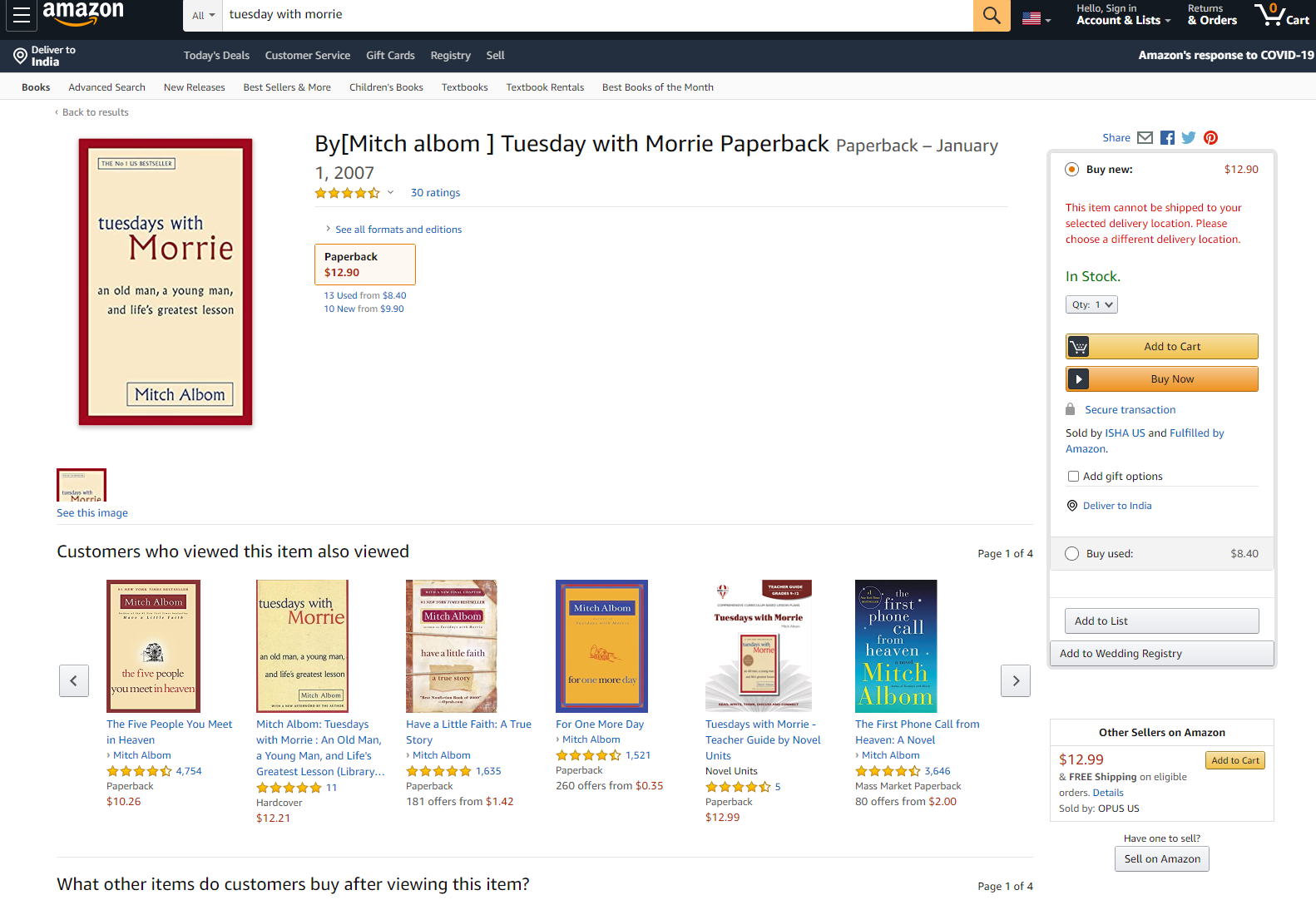
This personalised approach not only drives higher conversion rates but also encourages repeat purchases, leading to increased customer loyalty and lifetime value.
Amazon's recommendation engine is a prime example of how data-driven marketing can transform the customer experience. Amazon can deliver relevant and timely product recommendations that resonate with individual customers.
This creates a sense of personalization, making customers feel understood and valued, which in turn builds trust and loyalty.
As marketers, we can learn from Amazon's personalized recommendation strategy about the power of leveraging customer data to create personalized and relevant experiences. By analyzing customer behaviour and preferences, and delivering tailored recommendations, we can enhance customer engagement, loyalty, and lifetime value.
Amazon's success in using data-driven personalization serves as an inspiration for us to continually refine and optimize our marketing strategies to better serve our customers and create meaningful connections with them.
12. Adobe
Adobe's content marketing strategy is centred around its Adobe CMO.com website. The website provides valuable insights and centered resources for marketing professionals, making it a go-to destination for marketers seeking knowledge and expertise.
By consistently offering thought leadership content, industry trends, and best practices, Adobe has positioned itself as an authority in the marketing space. This approach has earned them a loyal following of marketing professionals who rely on Adobe's expertise and products to drive their marketing efforts.
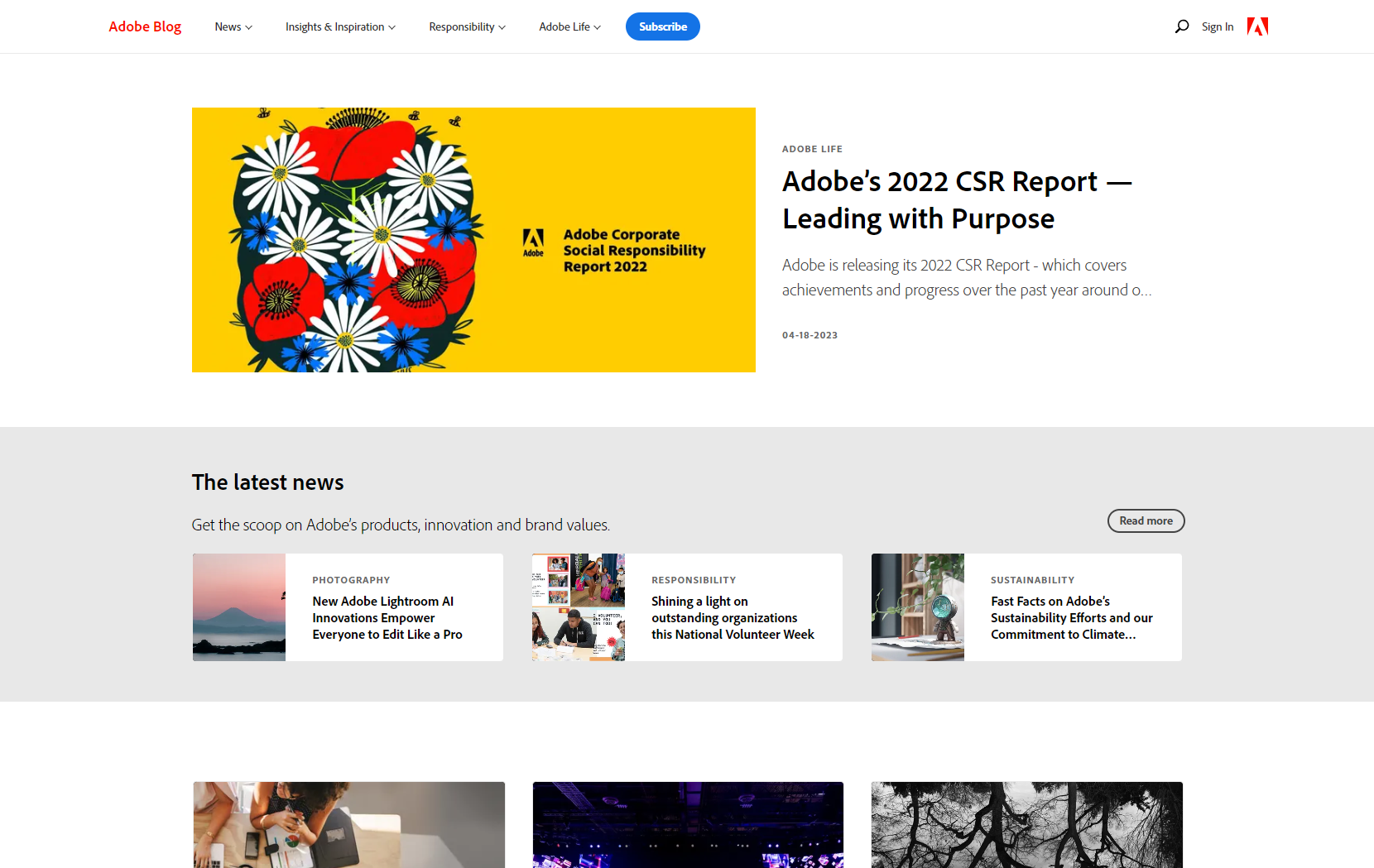
Adobe's CMO.com website features a diverse range of content, including articles, webinars, podcasts, and infographics. This variety of content formats allows Adobe to cater to different learning styles and preferences, ensuring that all marketing professionals can find valuable insights that resonate with them. The content is also updated regularly, keeping the website fresh and relevant.
Adobe's content marketing approach is not only focused on providing valuable insights to marketers but also showcasing the capabilities of their products. The website features case studies and success stories that demonstrate how Adobe's products can be used to drive results. By offering tangible examples of their products' impact, Adobe helps marketers see the value in investing in their products.
Overall, Adobe's content marketing strategy has been successful in establishing the brand as a thought leader in the marketing space. By providing valuable insights and resources, showcasing the capabilities of their products, and catering to different learning styles and preferences, Adobe has built a loyal following of marketing professionals who rely on their expertise and products to drive their marketing efforts.
13. ABTA Travel
As a savvy marketer, you know that social media advertising is an essential part of any comprehensive digital marketing strategy. Social media advertising allows you to target your audience with precision and deliver your message directly to those who are most likely to be interested in your products or services.

One example of a successful social media advertising campaign is ABTA's "Travel with Confidence" campaign, which used paid social media to increase brand awareness and drive engagement.
Paid social media is a form of social media advertising in which you pay to promote your content on social media platforms like Facebook, Twitter, Instagram, and LinkedIn. By investing in paid social media, ABTA was able to reach a larger audience and deliver its message to people who may not have been aware of its brand or services.
Dynamic ads are another form of social media advertising that allows you to deliver personalized content to your target audience based on their browsing history and behaviour. By using dynamic ads, you can tailor your message to each user, increasing the likelihood of engagement and conversion.
In the case of ABTA's "Travel with Confidence" campaign, the use of social media advertising was particularly effective in building trust and confidence among potential customers. By targeting users who were interested in travel, ABTA was able to deliver a message that spoke directly to their concerns about safety and security while travelling.
14. American Express' Guest Content
As a forward-thinking marketer, you understand the importance of building online communities and fostering meaningful conversations with your audience. However, not all companies can successfully create a community of real value.
American Express, on the other hand, is a prime example of a company that walks the talk and puts its money in the right place to leverage the expertise of industry leaders through its "Open Forum" initiative.
American Express has established Open Forum as a collaborative site that invites guest writers from various industries to share their business knowledge. This approach has resulted in a robust website with rich, valuable content that is highly regarded by search engines.
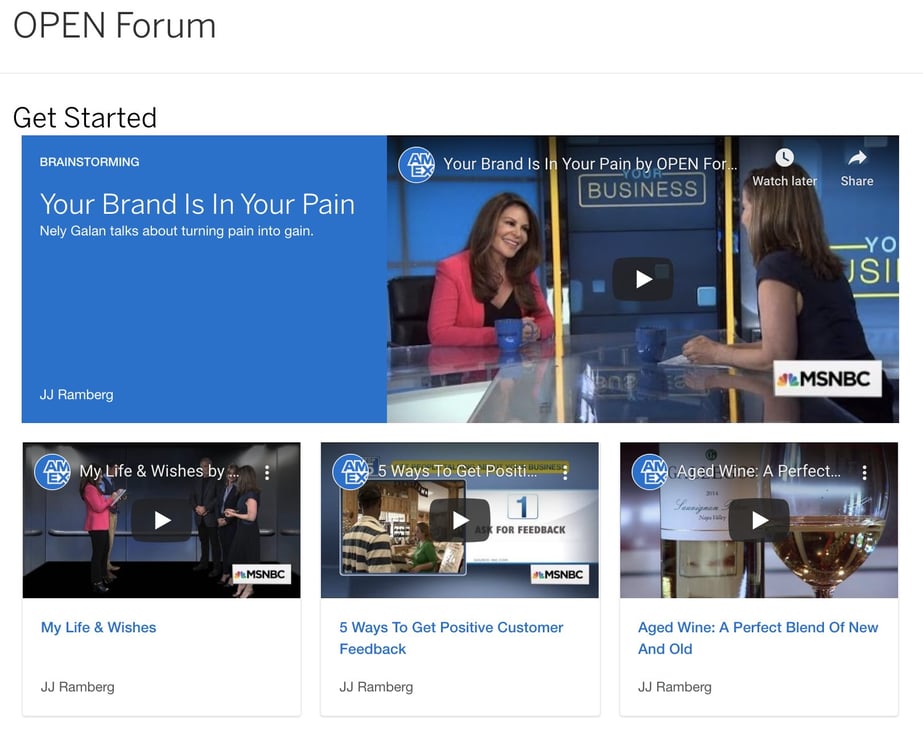
By tapping into the expertise of industry leaders, American Express has created a digital marketing strategy that goes beyond being just a content creator for their brand.
This approach serves as a powerful example of how you can leverage guest content to enhance your brand's online presence. Instead of solely relying on your content creation efforts, you can seek out industry experts who produce high-quality content and invite them to contribute articles to your blog or website.
By doing so, you can provide valuable insights and perspectives to your audience while also elevating your brand's authority in your industry.
The key to success in this approach is to ensure that the guest content you feature is truly valuable and aligns with your brand's messaging and values. When done right, guest content can help increase your website traffic, engagement, and overall brand credibility. It's a win-win strategy that not only benefits your audience with valuable insights but also strengthens your brand's reputation as a thought leader in your industry.
So, consider following American Express' example and explore opportunities to incorporate guest content into your digital marketing strategy. By tapping into the knowledge and expertise of industry leaders, you can create a community of value that resonates with your audience and propels your brand's online presence to new heights.
15. Slack's Top-Notch Customer Experience
One company that has mastered this approach is Slack, whose software has revolutionized team communication and file sharing within organizations.
Slack's meteoric rise to popularity in 2014, with its user base growing from 15,000 to 500,000 in less than a year, is a testament to the power of delivering a top-notch customer experience. Today, Slack boasts over 5,000,000 users and its success can be attributed to its unwavering focus on providing exceptional service.
A crucial element of Slack's customer experience strategy is its responsive customer support. They actively engage with their customers by addressing 8,000 help desk tickets and over 10,000 tweets every month. Their Twitter feed is also filled with valuable 140-character Slack tips, showcasing their commitment to helping users make the most out of their platform.
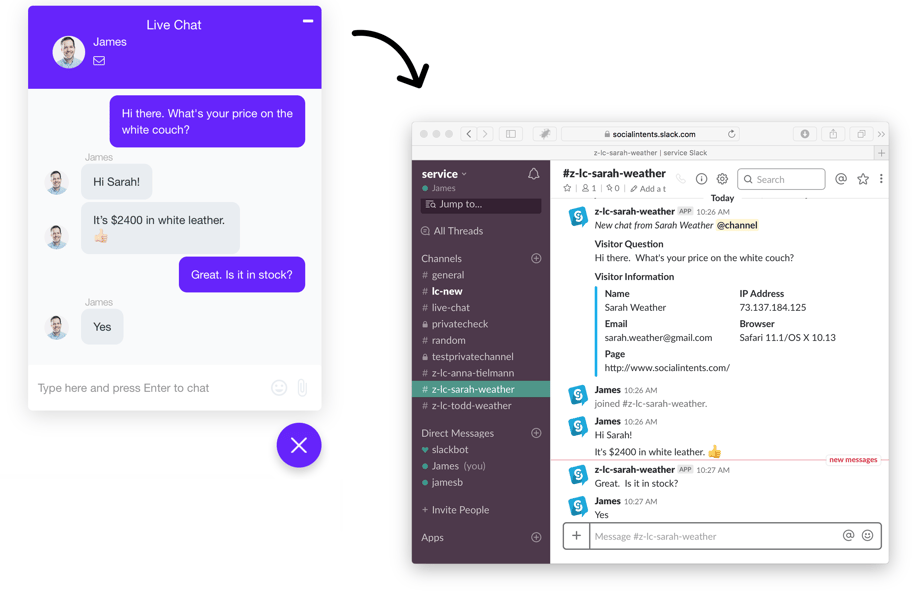
As a marketer, take a cue from Slack's playbook and prioritize delivering exceptional customer experiences. Invest in responsive customer support, listen to your customer's pain points, and strive to solve them.
Remember, a happy customer can become your biggest advocate and drive your brand's success in ways that traditional marketing efforts cannot.
Develop a Digital Strategy
As you reflect on these compelling digital marketing examples, it's clear that digital marketing is a game-changer for businesses of all sizes. It can empower you to reach new customers, build brand awareness, and drive sales like never before.
As a small business owner or a marketing professional, now is the time to embrace the world of digital marketing and harness its immense potential. Fine Media, an inbound marketing agency, can be your trusted partner in developing a comprehensive digital strategy tailored to your unique needs and goals.
Don't miss out on the opportunities that digital marketing can offer. Take the first step towards success by partnering with Fine Media and unlock the power of digital marketing to propel your business to new heights. Contact us today to get started!



